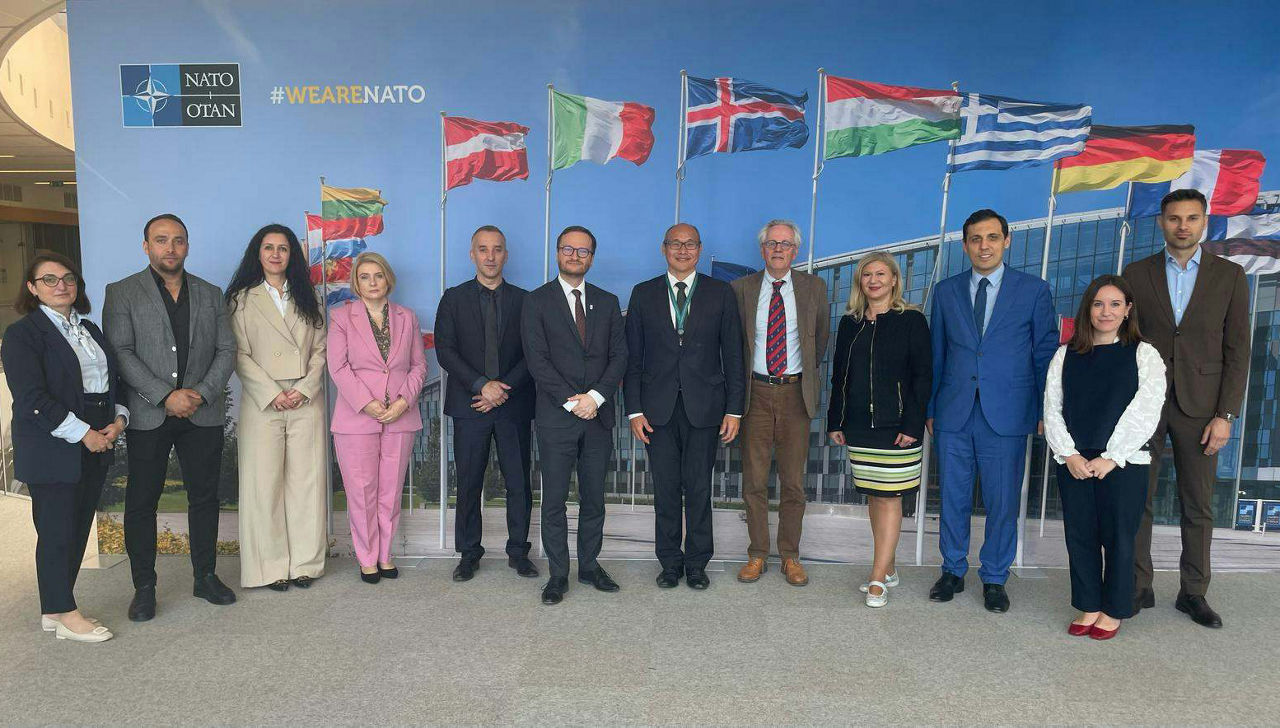Download NATO’s broadcast-quality video content free of charge

Log in
NATO MULTIMEDIA ACCOUNT
Access NATO’s broadcast-quality video content free of charge

Check your inbox and enter verification code
You have successfully created your account
From now on you can download videos from our website
Subscribe to our newsletter
If you would also like to subscribe to the newsletter and receive our latest updates, click on the button below.
Enter the email address you registered with and we will send you a code to reset your password.
Didn't receive a code? Send new Code
The password must be at least 12 characters long, no spaces, include upper/lowercase letters, numbers and symbols.
Your password has been updated
Click the button to return to the page you were on and log in with your new password.
International Board of Auditors for NATO (IBAN)
Updated: 19 February 2025
The International Board of Auditors for NATO (IBAN) is the independent, external audit body for NATO. Established in 1953, just four years after the signing of NATO’s founding treaty, its main mandate is to provide the North Atlantic Council (NAC) and the governments of NATO member countries with assurance that common funds have been properly used for the settlement of authorised expenditure. Three core values guide the International Board of Auditors’ work: independence, integrity and professionalism.
Who works for IBAN?
IBAN is composed of six members, appointed by the NAC – the principal political decision-making body at NATO – for a four-year, non-renewable term. Board members are high-ranking or former high-ranking officials, either from national audit bodies or governments of NATO member countries with a thorough knowledge of, and experience in, the auditing and examination of government financial operations. They have independent status, are remunerated by their respective countries, and report only to the North Atlantic Council.
The Chair of the Board is appointed by the NAC for a two-year term. The Board members are assisted by one principal auditor, two senior auditors, and 29 auditors and six administrative staff with NATO International Staff status.
What are IBAN’s mission and responsibilities?
IBAN is responsible for auditing the expenditure incurred by NATO. It provides assurance for expenditures being properly incurred by NATO of more than Euro 8 billion per year.
IBAN conducts three types of audits: financial audits of NATO bodies and reporting entities, performance audits of NATO, and financial audits of the NATO Security Investment Programme (NSIP).
- Financial audits of NATO bodies and reporting entities determine if the financial statements fairly present their financial position, financial performance and cash flows, and whether the funds have been properly used for the settlement of authorised expenditure and are in compliance with the regulations in force.
- Performance audits of NATO are carried out to evaluate the economy, efficiency and effectiveness of NATO’s activities, operations and programmes.
- Financial audits of the NATO Security Investment Programme (NSIP) cover the audit of cost statements of expenditures incurred by NATO bodies and member countries implementing NSIP projects, e.g., fixed infrastructure, deployable strategic equipment, and communications and information systems. The audit results in an audit opinion on the compliance of the incurred expenditures with NSIP regulations in force.






